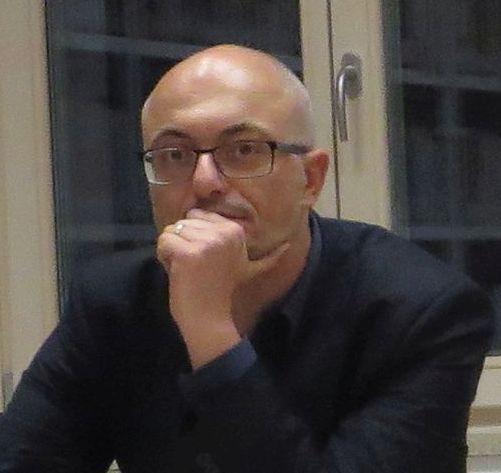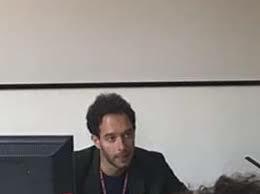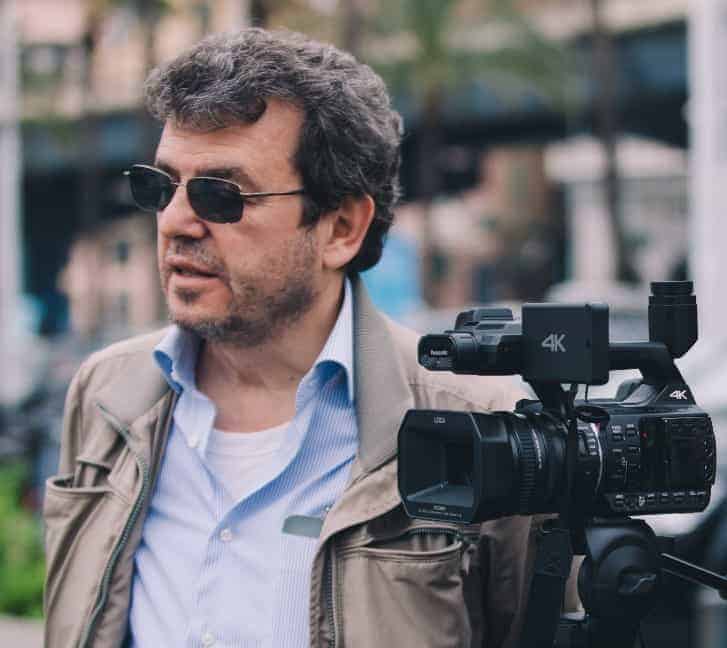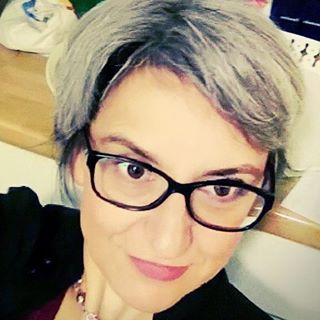Studying at the University of Verona
Here you can find information on the organisational aspects of the Programme, lecture timetables, learning activities and useful contact details for your time at the University, from enrolment to graduation.
Academic calendar
The academic calendar shows the deadlines and scheduled events that are relevant to students, teaching and technical-administrative staff of the University. Public holidays and University closures are also indicated. The academic year normally begins on 1 October each year and ends on 30 September of the following year.
Course calendar
The Academic Calendar sets out the degree programme lecture and exam timetables, as well as the relevant university closure dates..
| Period | From | To |
|---|---|---|
| 1 A | Sep 26, 2022 | Nov 5, 2022 |
| 1 B | Nov 14, 2022 | Dec 22, 2022 |
| 2 A | Feb 13, 2023 | Apr 6, 2023 |
| 2 B | Apr 12, 2023 | May 27, 2023 |
| Session | From | To |
|---|---|---|
| Sessione invernale | Jan 9, 2023 | Feb 11, 2023 |
| Sessione estiva | Jun 5, 2023 | Jul 29, 2023 |
| Sessione autunnale | Aug 28, 2023 | Sep 23, 2023 |
| Session | From | To |
|---|---|---|
| Sessione straordinaria (a.a. 2021/22) | Mar 31, 2023 | Apr 6, 2023 |
| Sessione estiva | Jul 10, 2023 | Jul 15, 2023 |
| Sessione autunnale | Nov 6, 2023 | Nov 11, 2023 |
| Sessione straordinaria | Apr 2, 2024 | Apr 8, 2024 |
| Period | From | To |
|---|---|---|
| Chiusura edifici | Oct 31, 2022 | Oct 31, 2022 |
| Festa di Ognissanti | Nov 1, 2022 | Nov 1, 2022 |
| Festa dell'Immacolata | Dec 8, 2022 | Dec 8, 2022 |
| Chiusura edifici | Dec 9, 2022 | Dec 10, 2022 |
| Vacanze di Natale | Dec 23, 2022 | Jan 7, 2023 |
| Vacanze di Pasqua | Apr 7, 2023 | Apr 10, 2023 |
| Festa della Liberazione | Apr 25, 2023 | Apr 25, 2023 |
| Festa del lavoro | May 1, 2023 | May 1, 2023 |
| Festa del Santo Patrono | May 21, 2023 | May 21, 2023 |
| Festa della Repubblica | Jun 2, 2023 | Jun 2, 2023 |
| Chiusura estiva | Aug 13, 2023 | Aug 19, 2023 |
Exam calendar
Exam dates and rounds are managed by the relevant Culture and Civilisation Teaching and Student Services Unit.
To view all the exam sessions available, please use the Exam dashboard on ESSE3.
If you forgot your login details or have problems logging in, please contact the relevant IT HelpDesk, or check the login details recovery web page.
Should you have any doubts or questions, please check the Enrollment FAQs
Academic staff
 giovanni.bernardini@univr.it
giovanni.bernardini@univr.it
 giacomo.buoncompagni@univr.it
giacomo.buoncompagni@univr.it
 francesca.cecconi@univr.it
francesca.cecconi@univr.it
 michele.pasqua@univr.it
michele.pasqua@univr.it
 giovanna.rech@univr.it
giovanna.rech@univr.it
 alberto.scandola@univr.it
alberto.scandola@univr.it
Study Plan
The Study Plan includes all modules, teaching and learning activities that each student will need to undertake during their time at the University.
Please select your Study Plan based on your enrollment year.
1° Year
| Modules | Credits | TAF | SSD |
|---|
1 module between the following1 module among the following2° Year activated in the A.Y. 2023/2024
| Modules | Credits | TAF | SSD |
|---|
1 module among the following1 module among the following| Modules | Credits | TAF | SSD |
|---|
1 module between the following1 module among the following| Modules | Credits | TAF | SSD |
|---|
1 module among the following1 module among the following| Modules | Credits | TAF | SSD |
|---|
Legend | Type of training activity (TTA)
TAF (Type of Educational Activity) All courses and activities are classified into different types of educational activities, indicated by a letter.
English Literature for Publishing (2022/2023)
Teaching code
4S02889
Teacher
Coordinator
Credits
6
Language
Italian
Scientific Disciplinary Sector (SSD)
L-LIN/10 - ENGLISH LITERATURE
Period
1 A, 1 B
Learning objectives
The module aims at providing specific knowledge about the history of English publishing, compared to the Italian one, with regard to the production of complex texts, such as Renaissance play texts, in relation to the transmission of their printed sources, as well as their own later circulation and re-elaboration in diverse genres and according to different printing practices. The module will offer advanced tools for textual analysis and for the interpretation of literary and dramatic genres within their historical and cultural contexts and in relation to their editorial traditions. It will also introduce students to critical approaches aimed at strengthening their argumentative skills. On successful completion of the module, students will be able to re-elaborate critically the acquired knowledge and to discuss topics employing appropriate linguistic and stylistic registers.
Prerequisites and basic notions
The English Literature for Publishing (LM-19) exam can only be taken if you hold a B2-level English language certification.
Program
"Print and Digital Practices and Multimedia Remediations: the Case of Romeo and Juliet."
This course introduces students to the printing practices of the English Renaissance and the editorial choices made in the contemporary publishing sector in view of today’s diverse audiences, including both print and digital solutions. It also focuses on some examples of remediation of Renaissance works over the centuries, from novellas to drama, musicals and films. William Shakespeare's Romeo and Juliet (1599), a celebrated exemplification of a myth of love and death, will offer a case study which will be analyzed in relation to its English narrative sources, Arthur Brooke's 1562 poem and William Painter's 1567 novella dedicated to this story. A number of subsequent famous rewrites over the centuries will also be presented, ranging from a manga version to other famous multimedia adaptations: from West Side Story (1961), and its 2021 Spielberg remake, to Baz Luhrmann's postmodern Romeo + Juliet (1996).
Attending and non-attending students alike are required to do all the readings indicated below.
Further teaching material will be available for download from the MOODLE repository.
Primary Texts:
• William Shakespeare, Romeo e Giulietta, a cura di Silvia Bigliazzi, Torino, Einaudi 2012 (or later reprints).
Secondary Texts:
• Alessandra Squeo, Print and Digital Remediations of the Shakespearean Text. A Hermeneutics of Reading from the First Folio to the Web, Pisa, ETS, 2022.
• Stephen Orgel, Authentic Shakespeare, London and New York, Routledge, 2002, chapters 1-4 (pp. 1-47).
• Michael Hunter, Editing Early Modern Texts. An Introduction to Principles and Practices, New York, Palgrave MacMillan, 2009 (optional reading).
• Silvia Bigliazzi, Guida a Romeo e Giulietta, Roma, Carocci, 2022 (optional reading).
• Megan Lynn Isaac, “Retelling the Tales: Examining Editions of Shakespeare”, e “Romeo and Juliet: Reincarnations”, in Heirs to Shakespeare: Reinventing the Bard in Young Adult Literature, Portsmouth, Heinemann, 2000 (optional reading).
• Emma Hayley, “Manga Shakespeare”, in Manga. An Anthology of Global and Cultural Perspectives, ed. by Toni Johnson-Woods, London, Continuum, 2010, pp. 267-280 (optional reading).
• Courtney Lehmann, Screen Adaptations. Shakespeare’s Romeo and Juliet. The Relationship between Text and Film, London, Bloomsbury, 2010 (optional reading).
Be advised:
- No editions other than those indicated in the syllabus are to be used. Texts are to be read in full. In the case of articles or book chapters, read the indicated page-range. Primary texts must be read in the original language.
- Any files uploaded in moodle other than those indicated in the above list, are not intended as substitutes for the texts in the syllabus.
- Other material in moodle not indicated in the syllabus is intended as optional.
Bibliography
Didactic methods
The course consists of face-to-face lectures with the active participation of students. The course will be held in English. Attending students will have the opportunity to take one self-assessment test at the end of the course. A written calendar of the topics that will be dealt with will be circulated in class at the beginning of the course.
If you need to isolate because you test positive for Covid, please contact the teacher to arrange for supplementary material.
Learning assessment procedures
Knowledge acquisition will be evaluated through an oral exam, which will consist in a discussion of the topics dealt with during the course. Alternatively, students may submit an essay in English of approximately 5,000 words at least a week before the exam. The essay will then be presented and discussed orally. For essay-writing guidelines please refer to the following text: Richard Marggraf Turley, Writing Essays, London and New York, Routledge, 2016 (2nd edition). Before submitting their essays, students are required to discuss their project with the teacher.
The assessment methods will be the same for attending and non-attending students.
Evaluation criteria
Students are expected to demonstrate:
1) knowledge of the critical methodologies employed during the course, of the history of the book and the literary works discussed during classes;
2) critical reasoning abilities;
3) adequate expository and argumentative skills in English.
Criteria for the composition of the final grade
The final grade will result from the average mark students will earn on the basis of the three criteria indicated above.
Exam language
Inglese.
Type D and Type F activities
COMPETENZE TRASVERSALI
| years | Modules | TAF | Teacher |
|---|---|---|---|
| 1° 2° | FAI Activities | F |
Edoardo Bianchi
(Coordinator)
|
| 1° 2° | Series of conferences Don Nicola Mazza University College | F |
Alessandra Zangrandi
(Coordinator)
|
| 1° 2° | Business English for everybody | F |
Serena Dal Maso
(Coordinator)
|
| 1° 2° | Russian for everybody | F |
Serena Dal Maso
(Coordinator)
|
| 1° 2° | Worlds of Fashion: Themes and Actors | F |
Alessandra Zamperini
(Coordinator)
|
| years | Modules | TAF | Teacher |
|---|---|---|---|
| 1° 2° | FAI Activities | F |
Edoardo Bianchi
(Coordinator)
|
| 1° 2° | Series of conferences Don Nicola Mazza University College | F |
Alessandra Zangrandi
(Coordinator)
|
| 1° 2° | Conference PRIN "Ippolito Nievo tra i Mille" | F |
Alessandra Zangrandi
(Coordinator)
|
| 1° 2° | Business English for everybody | F |
Serena Dal Maso
(Coordinator)
|
| 1° 2° | Russian for everybody | F |
Serena Dal Maso
(Coordinator)
|
| 1° 2° | From Romeo and Juliet to Juliet and Romeo: between Law and Passion”: Colloquium on Riccardo Zandonai | F |
Silvia Bigliazzi
(Coordinator)
|
| 1° 2° | Worlds of Fashion: Themes and Actors | F |
Alessandra Zamperini
(Coordinator)
|
| 1° 2° | Squadristi in celluloid. The march on Rome between documentary and fiction | F |
Denis Lotti
(Coordinator)
|
| 1° 2° | Università e DSA - Metodi e strategie per affrontare lo studio e il percorso universitario | F |
Simona Brunetti
(Coordinator)
|
| years | Modules | TAF | Teacher |
|---|---|---|---|
| 1° 2° | Gnoseology and Metaphysics Workshop | F |
Davide Poggi
(Coordinator)
|
| years | Modules | TAF | Teacher |
|---|---|---|---|
| 1° 2° | FAI Activities | F |
Edoardo Bianchi
(Coordinator)
|
| 1° 2° | Fine della "globalizzazione"? Dialoghi sul mondo che cambia | F |
Giovanni Bernardini
(Coordinator)
|
| 1° 2° | Introduction to robotics for humanities students | F |
Paolo Fiorini
(Coordinator)
|
| 1° 2° | Workshop on digital publishing | F |
Andrea Bongiorni
(Coordinator)
|
| 1° 2° | Laboratorio di scrittura critica per lo spettacolo | F |
Simona Brunetti
(Coordinator)
|
| 1° 2° | Opera Workshop | F |
Nicola Pasqualicchio
(Coordinator)
|
| 1° 2° | "Shake Shakespeare Up!" workshop | F |
Silvia Bigliazzi
(Coordinator)
|
| 1° 2° | Theatre with wheels | F | Not yet assigned |
| years | Modules | TAF | Teacher |
|---|---|---|---|
| 1° 2° | Gnoseology and Metaphysics Workshop | F |
Davide Poggi
(Coordinator)
|
| years | Modules | TAF | Teacher |
|---|---|---|---|
| 1° 2° | Future's Festival | F |
Alessandra Zangrandi
(Coordinator)
|
| 1° 2° | Laboratory of radio languages | F |
Simona Brunetti
(Coordinator)
|
Career prospects
Module/Programme news
News for students
There you will find information, resources and services useful during your time at the University (Student’s exam record, your study plan on ESSE3, Distance Learning courses, university email account, office forms, administrative procedures, etc.). You can log into MyUnivr with your GIA login details: only in this way will you be able to receive notification of all the notices from your teachers and your secretariat via email and soon also via the Univr app.
Graduation
List of thesis proposals
| theses proposals | Research area |
|---|---|
| Laureandi Editoria e Giornalismo: vademecum | Various topics |
| TESI SU COMUNICAZIONE DELL’AGROALIMENTARE | Various topics |

 +39 045802 8409
+39 045802 8409





































